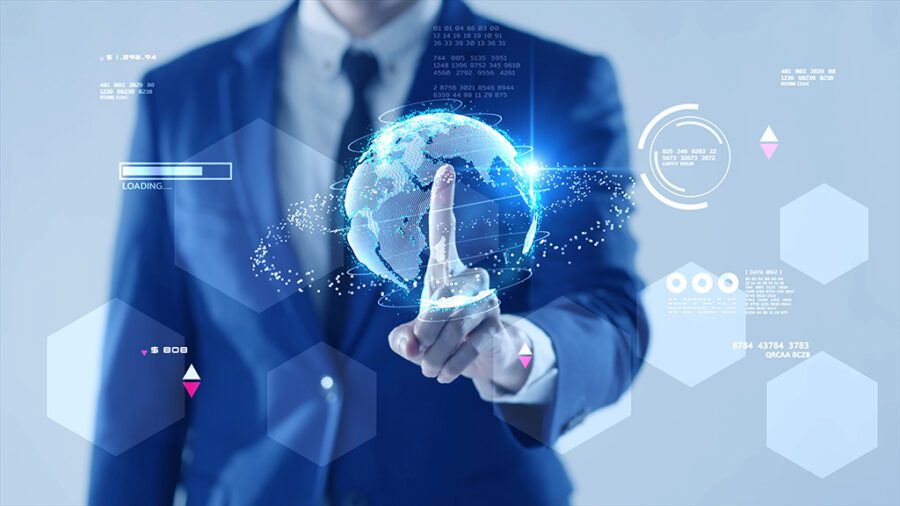
According to the McKinsey Report called Value Creation in the Metaverse:
- $120b+ in investment has flowed into the metaverse so far in 2022
- 79% of consumers active on the metaverse have made a purchase
- >15% of corporate revenue is expected to come from the metaverse in the next 5 years according to 25% of senior executives
The metaverse still has many unknowns but many industries could be transformed due to the metaverse due to its ability to blend the physical and the virtual worlds seamlessly.
Below are the use cases for the metaverse across industries:
1 Gaming: Gaming is a natural use case for the metaverse by providing an immersive experience leading to an increase in time spent, and new monetization avenues
2 eCommerce: By making search, browse, purchase, and post-purchase more immersive, eCommerce could become more personalized
3 Live entertainment: could benefit by creating immersive online+offline experiences, and at a greater scale (catering to global audiences concurrently) and frequency
4 Education: the metaverse can scale access to virtually ‘limitless’ participants (as hardware becomes more ubiquitous), and enhance education delivery and quality, including for adult training/learning experiences
5 Health & Fitness Health and Fitness can continue to evolve towards remote (and in the case of fitness – social) settings – and improve quality by becoming more immersive
6 Advertising The metaverse is expected to assume a higher share of advertising placements and budgets as consumers spend more time in the metaverse per day
7 Digital Media The metaverse can accelerate digital media via net-new revenue streams (e.g., the share of virtual asset sales), additional monetization of existing IP, and larger-scale events
8 AR/ VR Hardware Metaverse device/ interface sales driven by widening appeal for and access to more immersive experiences
9 Virtual Real Estate Virtual Real Estate is expected to become more popular
10 NFTs (inc. Pure Virtual Fashion) Popularity of NFTs is driven by more than just novelty over time, e.g., traceability of IP ownership (artist), certification of originality (fashion, sustainability), utility tokens; and the overall move of physical consumer products to online+offline ‘twinned’ products Enterprise
11 Banking Banks can scale use-cases in the metaverse for new B2B products/ services (e.g., insurance, payment systems, infrastructure);
12 Construction The metaverse can transform the construction process through data, management, and development. Data: Project real-time monitoring, collecting information
13 Discrete Manufacturing AI-supported construction and manufacturing software company Manufacturing will see next-gen industrialization from central coordination, maintenance, and service
14 Education Education within the metaverse can scale access to virtually ‘limitless’ participants (as hardware becomes more ubiquitous), and enhance education delivery and quality, including for adult training/learning experiences
15 Government (Central/ Federal) Government adoption of the metaverse is driven by new avenues to enhance government sector performance and productivity; provide enhanced public services at scale, and the need for new regulation and governance for the metaverse
16 Healthcare Provider Healthcare improvements can be driven by efficiency gains (e.g., optimized hospital operations, faster, safer, and more accurate); and improvement in remote diagnostics and procedures;
17 Insurance Insurance will see efficiencies from decentralized structures; as well as increased demand for new products (e.g., virtual real estate)
18 Media Media will adopt metaverse for new ad-based revenue streams (e.g., applications/ platforms for the creator economy); and for efficiencies in managing distributed networks (e.g., data centers)
19 Personal/ Consumer Services Consumer/ Retail practice Personal and Consumer services can profit from more immersive experiences; access at a larger scale, and efficiencies from reduced production costs (and supply chain constraints) for virtual assets
20 Process Manufacturing Manufacturing will see next-gen industrialization from central coordination, maintenance and service of even locally dispersed units (e.g., via IoT/digital twins); increase in collaboration on R&D; and XR-enabled simulation of manufacturing and assembly- able to plan details up to “screw-level”, while data collection allows project real-time monitoring and ex-post analysis
21 Professional Services ‘Utilities’ can profit from optimized operations (e.g., faster, safer, and more accurate) and overall project real-time monitoring; and from information and data collection metaverse that aids in optimization
22 Resource Industries AI-supported construction and manufacturing software company ‘Utilities’ can profit from optimized operations (e.g., faster, safer, and more accurate) and overall project real-time monitoring; and from information and data collection metaverse that aids in optimization
23 Retail Consumer/ Retail practice Trade (retail and wholesale both) can adopt metaverse to enhance shopping/in-store/product experience; capture efficiencies, and explore net-new revenue streams (e.g., virtual goods and services)
24 Securities/ Investment Securities and investment can leverage metaverse for new B2B products/ services (e.g., investment systems); DeFi structures driving efficiencies, and improved user engagement on new products
25 Government (Local/ State) in the public sector practice Government adoption of the metaverse is driven by new avenues to enhance government sector performance and productivity; provide enhanced public services at scale, and the need for new regulation and governance for the metaverse Value creation in the metaverse:
26 Telecommunication Telecoms practice Telcos are expected to benefit from the need for and monetization potential of enhanced infrastructure (e.g., 5G); as well as productivity improvements in internal operations; and improvements in customer experience (e.g., employee training, service center operations)
27 Transportation Transport sector can benefit from central coordination and project management (e.g., via IoT/digital twins), especially in logistics; and real-time data collection for optimization
28 Utilities’Utilities’ can profit from optimized operations (e.g., faster, safer, and more accurate) and overall project real-time monitoring; and from information and data collection metaverse that aids in optimization
29 Wholesale Trade (retail and wholesale both) can adopt metaverse to enhance shopping/in-store/product experience; capture efficiencies, and explore net-new revenue streams (e.g., virtual goods and services)
To conclude, there are many areas where the metaverse could transform industries. The critical issue is the scale and user adoption. I expect some industries like education, media, and retail will be the pioneers
Image and content adapted from McKinsey value-creation in the metaverse:
